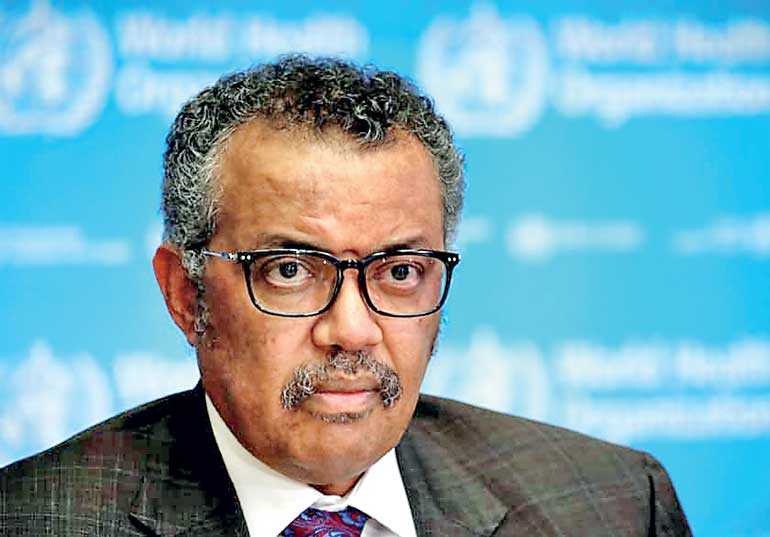Tuesday Feb 17, 2026
Tuesday Feb 17, 2026
Tuesday, 19 May 2020 00:00 - - {{hitsCtrl.values.hits}}

World Health Organization chief Tedros Adhanom Ghebreyesus
GENEVA (AFP): The World Health Organization on Monday kicked off its first ever virtual assembly, but fears abound that US-China tensions could derail the strong action needed to address the coronavirus pandemic.
The World Health Assembly, which has been trimmed from the usual three weeks to just two days, Monday and Tuesday, is expected to focus almost solely on COVID-19, which in a matter of months has killed more than 310,000 globally, and infected nearly 4.7 million.
The UN Secretary-General Antonio Guterres opened the event, lamenting that a number of countries had ignored the recommendations of the WHO.
“Different countries have followed different, sometimes contradictory, strategies and we are all paying a heavy price,” he warned in a video address.
WHO director Tedros Adhanom Ghebreyesus was also due to address the virtual assembly, as were a number of heads of state, including Xi Jinping of China, government chiefs and health ministers.
Tedros said on Friday the event would be “one of the most important (World Health Assemblies) since we were founded in 1948”.
But the chance of reaching agreement on global measures to address the crisis could be threatened by steadily deteriorating relations between the world’s two largest economies over the pandemic.
US President Donald Trump last week threatened to cut ties with China, where the outbreak first emerged late last year, over its role in the spread of COVID-19, and has repeatedly made unproven allegations that the virus originated in a Chinese lab.
He has also suspended funding to the WHO over accusations it initially downplayed the seriousness of the outbreak, and was kowtowing to Beijing.
Despite the tensions, countries hope to adopt a resolution by consensus urging a joint response to the pandemic.
The resolution, tabled by the European Union, calls for an “impartial, independent and comprehensive evaluation” of the international response to the coronavirus crisis.
Consultations around the text concluded last week after “tough” negotiations, according to Nora Kronig, who heads the international affairs division of Switzerland’s public health office.
After several days, a tentative agreement was reached to approve the resolution, which also calls for more equitable access for tests, medical equipment, potential treatments and a possible future vaccine.
An EU source hailed the draft as “ambitious”, and pointed out that if it does indeed pass by consensus as expected, it would mark the first time a global forum has achieved unanimous support for a text on the COVID-19 response.
The source said countries had not shied away from thorny topics, including a call for more WHO reform after determining that its capacities “have proven insufficient to prevent a crisis of this magnitude”.
The resolution also calls for the WHO to work closely with other international agencies and countries to identify the animal source of the virus and figure out how it first jumped to humans.
While diplomats have agreed in principle on the draft resolution, observers voiced concerns that in the current politicised atmosphere, some countries might still choose to break the consensus next week.
“My hope is that we will be able to join consensus,” US Ambassador to the United Nations in Geneva Andrew Bremberg said Friday.
The United States and Europe are at loggerheads over future vaccine access, while Washington has also accused China of trying to steal US immunisation research.
And Washington is also leading a number of countries in demanding that the WHO end its exclusion of Taiwan – considered by Beijing to be part of its territory – and allow it to access next week’s assembly as an observer.